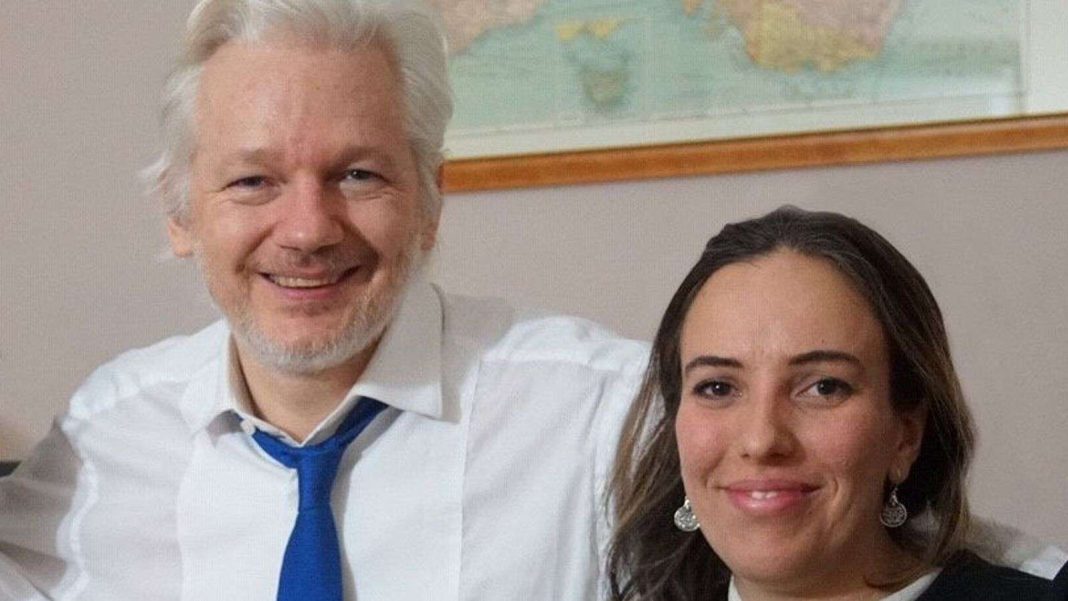According to his fiancée, British jail officials have granted WikiLeaks founder Julian Assange permission to marry while still in captivity, as he awaits a vital court judgement on whether he will be extradited to the United States.
Assange, who is sought by the United States government on a variety of offences stemming from the widespread leak of confidential information, wants to marry Stella Moris, a former member of his legal team with whom he has two children.
He is being imprisoned at the Belmarsh high-security prison in London as the High Court prepares to decide on a United States appeal against a lower court’s decision to deny his extradition to the United Kingdom.
After being “basically barred from being allowed to marry,” WikiLeaks said in a statement late on Thursday that the couple had taken legal action.
A picture of the couple posing under a rainbow was posted on Twitter by Moris with the message: “Good news: the UK government has backed down 24 hours before the deadline.”
In Belmarsh Prison, Julian and I have been granted permission to be married.
The fact that legal action was required to put a halt to the unlawful interference with our fundamental right to marry has comforted me, but it has also angered me.
“Mr Assange’s application was received, examined, and handled in the normal manner by the prison governor, just as it would have been for any other prisoner,” a spokeswoman for the Prison Service said.
In 2019, Australian native Julian Assange, 50, was detained in the United Kingdom for breaching his bail after spending seven years in Ecuador’s embassy in London, where he was attempting to evade extradition to Sweden, where he was accused of sexual assault. These were subsequently removed off the list.
WikiLeaks released 500,000 classified papers documenting parts of military operations in Afghanistan and Iraq in 2010, and the United States government has charged him on 18 counts related to that publication.
According to Washington’s legal team, he might face a term of up to 175 years in prison, while they argue it is impossible to predict his exact punishment and that it could be much shorter.
Assange faces a high danger of suicide and mental health deterioration, according to a January ruling by UK district court judge Vanessa Baraitser, who deemed extradition of Assange “oppressive.”
The United States is presently appealing the ruling, and the Supreme Court is expected to decide within weeks on whether or not to remand the issue to a lower court for further review.

